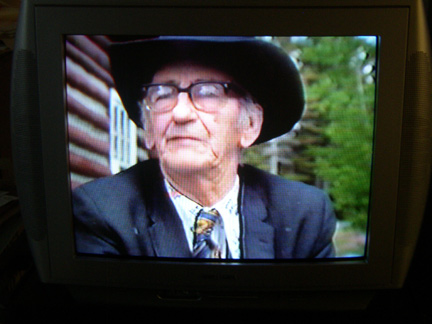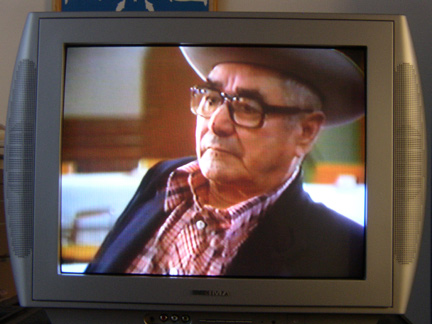|
Maurice L'Hirondelle Former President, FMSA
click to enlarge cover |
Start 1930-31 1932 1933 1934 1935-38 1939 1940-41
In 1934, Dion found himself increasingly on the defensive regarding the need for reserved Métis lands at Fishing Lake, where the "movement" started. He fought hard to have Fishing Lake kept as one of the eleven proposed sites.
Early in the year there were two opportunities for the Métis executive to express the positions of the Association on land, administration, trap-lines, education and health. These happen on January 29, 1934 in a report to the Executive Council of government and April 14, 1934 in a memo to Dechene who used it as part of his legislative motion demanding government action on the 1933 legislative resolution.
The January report from Brady and Norris to the Executive Council of government reported on the January 10/11, 1934 Second Annual Convention of the Métis association and the resolutions. It contained suggestions once again for Métis-specific reserved land and commentary on conservation and resources use.
At this critical time, January to April 1934, it appeared to some Métis executive members that government and the Church were attacking their credibility and the Association.
The Métis also suffered some clear defeats at this time. The first was a defeated motion in the legislature put forward by Dechene, the Liberal MLA, demanding the government act on the February 1933 Resolution of the Legislature, itself calling for government action on the "Métis question". The second defeat, also in April 1934, was when Brownlee, the Premier, and, Claypool, the Chairman of the Agriculture Committee, denied a request to have the Métis leaders present their case on trap-line regulation. At the same time, the Deputy Minister of Agriculture, Craig, told Brady and others that their problems were of their own making, suggesting they had not voted appropriately (remember, Dechene representing St. Paul was a Liberal, and not a member of the CCF government).
At mid-year, however, a number of events took place: Reid who had been a supporter of dealing the Métis concerns, became UFA/CCF premier (in July); during the Fall, George Hoadley, the Minister of Health, requested assistance from the federal government and received the response from T. G. Murphy, the Minister of the Interior (who was also the Superintendent of Indian Affairs), that Métis were not a federal responsibility. However, the federal government would, he said, allow one of its "stipendiary magistrate in the northwest territories", J. M. Douglas, to be a member of a commission of inquiry and would pay for his time. And so, on December 11, 1934 the Ewing Commission was in place by Order-in-Council, after Reid presented sessional paper #75 to the legislature justifying its establishment. It would study the health, education and welfare of the Métis in Alberta.
|


